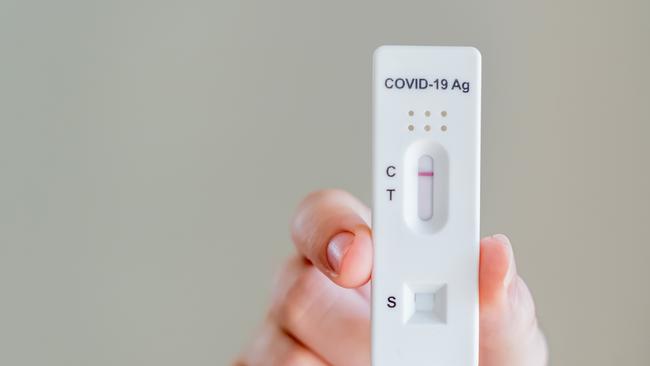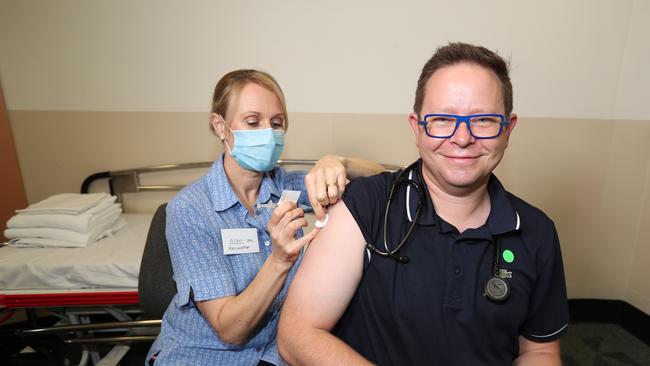Data reveals new details about Qld’s Omicron casualties
New data has revealed just who in Queensland sadly succumbed to Covid during the latest Omicron wave.
QLD Coronavirus News
Don't miss out on the headlines from QLD Coronavirus News. Followed categories will be added to My News.
Queenslanders in their eighties have emerged as the main casualty of the Covid-19 Omicron wave new data has revealed, just as the state prepares to ditch all remaining pandemic restrictions.
A total of 563 people have died due to or with Covid-19 since December 13, with Queensland Health data revealing two of every five casualties were people in their eighties.
This despite octogenarians making up an estimated one per cent of the more than 570,000 Covid-19 cases recorded in the state.
The data comes as Queenslanders prepare to ditch masks in indoor setting from 6pm on Friday, with density limits on weddings and funerals also set to be dropped.

Infectious disease expert Professor Paul Griffin warned it was likely Covid-19 cases would marginally increase across the state due to the drop in restrictions, though it may not be reflected in official case numbers as testing becomes less of a priority for Queenslanders.
The state recorded 6479 new Covid-19 cases on Thursday and six more deaths.
Queensland Health Covid-19 death data revealed 220 casualties since mid-December were octogenarians, 135 people were in their 90s, and 118 were in their 70s. Eight people were more than a century old.
In total, Queenslanders aged 60 and older accounted for 96.6 per cent of all Covid-19 deaths in the Omicron wave.
Prof Griffin said the data underlined again how the elderly were most at risk of succumbing to Covid-19, therefore getting them vaccinated was of the utmost priority.
“It is also important to point out that even though the number is lower, we do still see young people suffer the consequences of this disease,” he said.

Five of Queensland’s Covid-19 deaths were in their 30s, one was in their 20s, one between the age of ten and 19 and one was younger than ten.
Density limits on weddings, funerals, and people allowed in homes will be dropped as of 6pm on March 4.
Food courts, hairdressers, gyms and universities will also no longer be subject to density restrictions.
Schools will be allowed to have visitors and hold excursions and assemblies.
Masks will no longer be required in most indoor settings, including workplaces, schools, shops, cafes, restaurants and pubs.
But people will be required still to wear them on public transport and in rideshares, and when visiting airports, prisons and disability and aged care settings.



